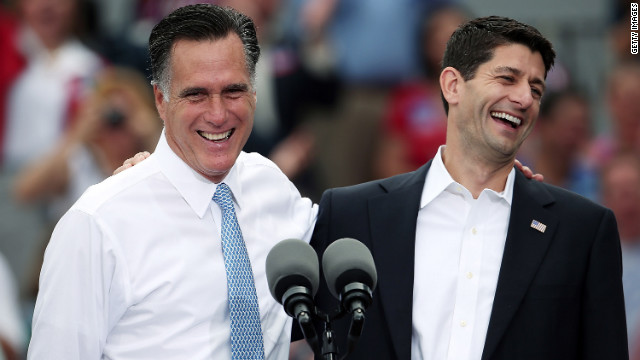 |
| They bought it hook, line, and sinker, didn't they, Karl? |
I spend a lot of time railing against conservatives and their club known as the Republican Party for the simple reason that they seem, in my view, to be mean, nasty, and dangerous. I'm also continually amazed that a significant number of Americans identify with this mean, nasty and dangerous policy position.
Many of us remember that classic political moment when George W. Bush declared that he was a "compassionate conservative." We also remember that the Bush campaign in 2000 was anything if not alliterative as W. was also a "reformer with results." That W. was neither wasn't discovered by the body politic until it was too late. I've wrongly assumed, by the way, that Karl Rove invented the phrase. It turns out compassionate conservatism came from a conservative in the 1970s, Doug Wead, who believed there should be no contradiction in using the two words together. Though the term was bandied about for three decades, it seems that W. did get it from Wead.
I've wondered often why compassion is not a conservative trait. Liberals are not only accepted as the compassionate ones, they're also constantly derided for it. Liberals have "bleeding hearts." Because liberals believe that the least among us should be helped and that the luckiest among us should pay for it, liberals are condemned as engaging in "class warfare."
Read the Wikipedia article on compassionate conservatism. Here's from the section about "Criticism" of the term:
Some critics of George W. Bush have criticized the phrase "compassionate conservatism" as simply sugarcoating; an empty phrase or vacuism to make traditional conservatism sound more appealing to moderate voters. Liberal commentator Joe Conason, noting Bush's policy of tax cuts, wrote in 2003 that "so far, being a 'compassionate conservative' appears to mean nothing very different from being a hardhearted, stingy, old-fashioned conservative."[17] Similarly, former President Bill Clinton described the message of compassionate conservatism as: "I want to help you. I really do. But you know, I just can't" or similar variants.[18] According to Tony Blair, "the only difference between compassionate conservatism and conservatism is that under compassionate conservatism they tell you they're not going to help you but they're really sorry about it."[19]Regardless of its origins and criticisms of its (non-existent) implementation, George W. Bush certainly never offered any proof that he intended to live up to the expression once he adopted it.
Again, I come back to why? Well, let's take a look at policies that, if adopted, would show compassion and where conservatives stand on them:
- In the face of growing income inequality, we need to raise the minimum wage, which is 7.8% lower in real terms than it was in 1967. Conservative position: Absolutely not.
- Because of the weak recovery in employment, leaving many long-term unemployed without hope, Democrats want to extend unemployment benefits. Conservative position: Absolutely not.
- In spite of growing poverty, both Republicans and Democrats lowered food stamps by $8 billion in the recently approved farm bill. Conservative position: Lower it five times as much.
- As college becomes increasingly unaffordable for all but the most affluent young Americans, students finish their college years owing, on average, $29,400. Conservative position: Double the student-loan interest rate.
- Women suffer from income inequality by much greater rates than men because of the well-established income gap. Democrats supported the Lily Ledbetter Fair Pay Act of 2009. Conservative position: Voted as a block against it (handful of usual moderate GOPers voted for it).
- The PPACA Act (Obamacare) called for helping the poor get healthcare by expanding Medicaid. Conservative position: Absolutely not (25 states refuse expansion, all of them because of GOP governors or GOP legislatures).
- Economists agree that we need jobs programs to speed our lagging recovery. GOP-controlled House: Nothing, and no jobs programs of any kind have passed since the Democratically controlled House and Senate passed the Recovery and Reinvestment Act in 2009.
- Universal preschool is considered one of the best things we can do to improve education and job prospects. Conservative position: too expensive.
- A whole generation of Hispanic children has grown up, as American as you and me, in the shadows because their parents are undocumented. The Democrats want to give them a path to citizenship if they go to college or serve in the armed forces. The conservative position: Absolutely not.
- Guns kill people. You can talk all you want about self-defense, but I have never seen a gun unkill people. The conservative position: Absolutely no gun control of any kind.
Verdict: Compassionate conservatism was a fallacy when George W. Bush bandied it about back in 2000, and it's a fallacy now. That leaves Democrats and liberals as the champions of compassion and empathy.
Why? And, more importantly, why, then, do so many under-educated, low-skilled, working-class white Americans think conservatives hold the key to success in America? If so, why do most Americans, and in many cases most Republicans, think life is unfair in America?
I don't claim to have all the answers, but I do believe that compassion and empathy may hold the key as we move forward.
 |
| Working-class heroes? |

No comments:
Post a Comment